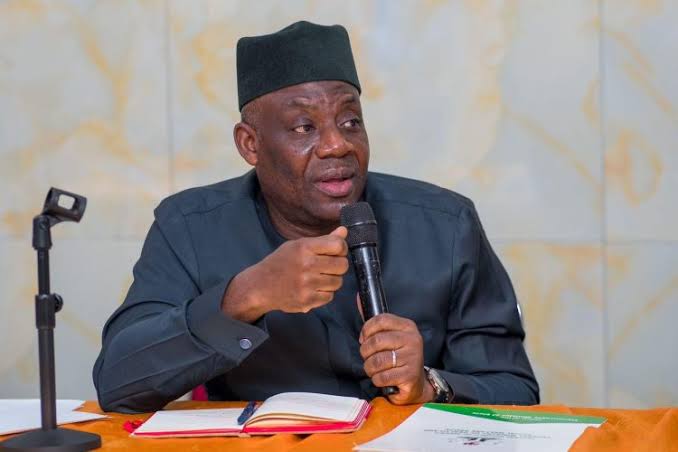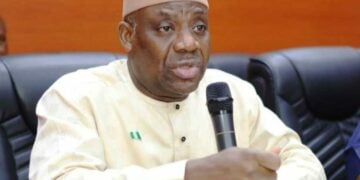The Federal Government has re-enrolled over one million out-of-school children across the country as part of a renewed national effort to strengthen foundational learning and expand access to quality education.
Minister of Education, Dr Tunji Alausa stated this while speaking at the opening of the 69th National Council on Education (NCE) meeting in Akure, Ondo State capital.
Alausa said contrary to popular belief, 95 per cent of out-of-school children were out of school due to poverty, not insecurity. “President Tinubu has approved significant funding to bring them back and ensure retention through school feeding and welfare programmes.”
He disclosed further that a school feeding programme targeting 300,000 pupils was currently being piloted in six states, with plans for nationwide expansion.
Alausa also outlined major reforms being implemented under the President Bola Tinubu’s administration to include the Teacher Registration and Licensing System (TRLS) through the Teachers Registration Council of Nigeria (TRCN), and the National Teachers’ Resource Centre (NTRC) for nationwide teacher training.
He disclosed that teacher development programmes have now moved online, enabling educators across the country to receive training remotely and earn financial incentives upon completion.
“We have moved teacher development online, where teachers anywhere in the country can access training, take short breaks, and after passing, they will be paid for completing their development programmes. In rural areas, where teachers earn less, such incentives of ₦10,000 to ₦15,000 make a real difference,” Alausa said.
He added that teachers would enjoy free data access under the programme, while digital payment systems would ensure seamless implementation.
Alausa also announced the launch of the Digitised National Education Management Information System (DNEMIS), a cloud-based platform designed to improve real-time data collection and evidence-based decision-making.
“For the first time in Nigeria’s history, school census data is now cloud-based. From 2026, every school, even in rural areas, will upload data directly using mobile devices. We can now make informed, evidence-based interventions and monitor outcomes,” he assured.
Declaring the conference open, the Ondo State governor, Hon. Lucky Aiyedatiwa, described education as the most powerful tool for social mobility, national unity and sustainable development.
Governor Aiyedatiwa said Ondo State’s long-standing legacy in education had continued from the free education era of the old Western Region to modern investments in digital learning, teacher welfare and school infrastructure.
He noted that the state’s policy direction remained anchored on quality and inclusivity, “Our goal is to make education not just accessible, but meaningful and transformative. Every child in Ondo State deserves a fair chance at learning and success.”
Commending President Tinubu for initiating reforms like the Nigerian Education Loan Fund, which has supported more than 624,000 students, Aiyedatiwa said the move had bridged the gap between children of the rich and the poor.





